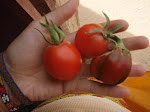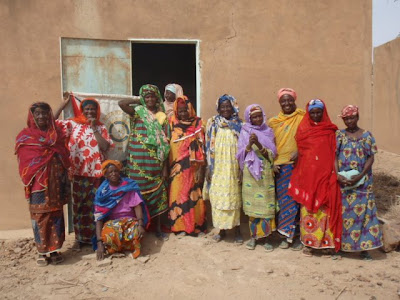 Millet
Millet
The growing season (May-August) is completely devoted to growing the staple crop of millet and there is zero time for anything else. But during the cold season (Dec-March) some folks try to grow veggies. "Cold" is a relative term. This week it was 111° F (43.8°C) in the shade.
From December through March, when the temperatures are a little lower and there's not any farming to be done, many villagers plant vegetable gardens around the edges of seasonal ponds. By this time of year the ponds are dried up, but usually there are shallow wells nearby that have enough water to work with. In my village it's mostly women who do 'cold season vegetable gardening' ('noman rani', in Hausa), although there are several men who are using this time to transplant mangos, neem trees, and henna. In past years I hear that there were at least 30 women who gardened, but that number has dwindled to five because of frustrations with crops being ruined by errant grazers (and chickens). This year, it's Osuma, Narba, Hassana, Karima, and...me.
Most women plant the same things: tomatoes, hot peppers, cabbage, lettuce, and carrots. And, while they will take some of their wares home with them to eat, the majority of vegetables are grown with the intention to sell them either at the larger market in Illela or here in town. A nearby village, which has a great area fenced in for the gardeners, is already producing a ton of lettuce; on any given day I'll run into a young girl selling it out of a giant plastic bag on her head. It's cheap- 50 CFA (10 cents) for about 2 heads.
I planted a bunch of collards, zucchinis, and cucumbers. The collards and zucchinis weren't familiar to my fellow gardeners, but they've had cucumbers before. It'll be cool if everything makes it, although I'm skeptical about the collards' heartiness in such hot weather. I'll let you know how it goes.
 We are washing lettuce in the hostel in Konni, and it is verrry dirty. Ate it anyway.
We are washing lettuce in the hostel in Konni, and it is verrry dirty. Ate it anyway.
That's it for now...but more about gardening later.



















